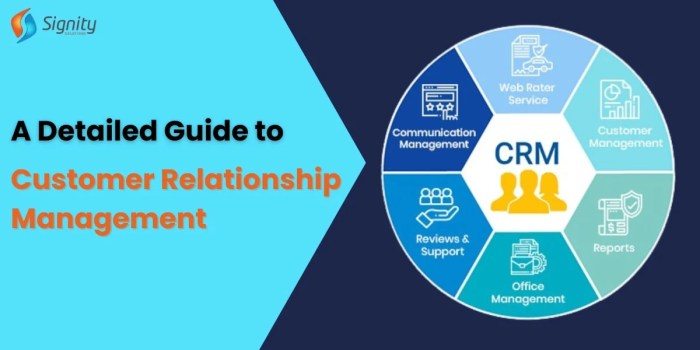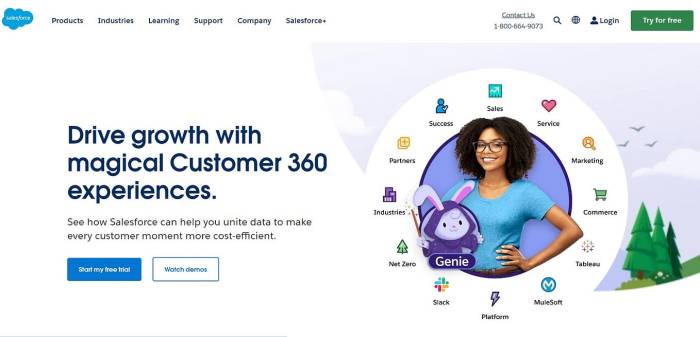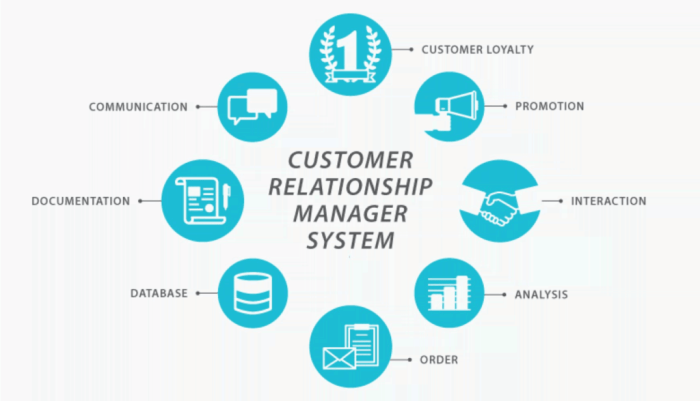Customer service software crm – In today’s competitive landscape, exceptional customer service is no longer a luxury—it’s a necessity. Businesses that prioritize customer satisfaction often see increased loyalty, higher retention rates, and ultimately, greater profitability. To achieve this, many companies leverage Customer Relationship Management (CRM) software specifically designed to enhance their customer service capabilities. This comprehensive guide delves into the world of customer service software and CRM, exploring its features, benefits, and how to choose the right solution for your business.
Understanding Customer Service Software and CRM
Customer service software, often integrated within a CRM system, streamlines interactions between businesses and their customers. It acts as a central hub for managing customer interactions across multiple channels, providing tools to improve efficiency, track performance, and ultimately, deliver a superior customer experience. A CRM (Customer Relationship Management) system goes beyond basic customer service; it encompasses the entire customer lifecycle, from initial contact to ongoing engagement and loyalty programs.
Many modern CRMs include robust customer service functionalities as a core feature.

Source: signitysolutions.com
Key Features of Customer Service Software within a CRM:, Customer service software crm
- Ticketing System: Organizes and manages customer inquiries efficiently, assigning tickets to appropriate agents and tracking their progress. This ensures no customer request falls through the cracks.
- Live Chat: Provides instant communication with customers through a website or app, offering immediate support and resolving issues quickly. Many platforms offer features such as chatbots for initial triage.
- Email Management: Centralizes email communication, allowing agents to respond to customer emails from a single platform, improving response times and maintaining a consistent brand voice.
- Knowledge Base: A searchable database of articles, FAQs, and other resources that empowers customers to self-serve, reducing the burden on support agents. This also helps to ensure consistency in the information provided.
- Call Center Integration: Seamlessly integrates phone calls into the CRM, allowing agents to access customer information and history during calls, providing a more personalized experience. Features like call recording and automated call distribution (ACD) are common.
- Social Media Integration: Monitors social media channels for mentions of the brand and customer inquiries, allowing for proactive engagement and issue resolution.
- Reporting and Analytics: Provides detailed reports on key metrics such as customer satisfaction (CSAT), resolution times, and agent performance, allowing businesses to identify areas for improvement.
- Automation: Automates repetitive tasks such as sending automated email responses, assigning tickets, and routing calls, freeing up agents to focus on more complex issues.
- Self-Service Portal: Empowers customers to access support resources, track their tickets, and manage their accounts independently, promoting greater autonomy and reducing support requests.
Benefits of Using Customer Service Software and CRM
Implementing a robust customer service software and CRM system offers numerous benefits, leading to significant improvements in business operations and customer relationships:
- Improved Customer Satisfaction: Faster response times, personalized interactions, and efficient issue resolution all contribute to higher customer satisfaction levels.
- Increased Efficiency and Productivity: Automation and streamlined workflows free up agents to focus on more complex issues, increasing overall productivity.
- Reduced Operational Costs: Automation and self-service options reduce the need for large support teams, lowering operational costs.
- Better Customer Retention: Positive customer experiences fostered by efficient and effective service lead to increased customer loyalty and retention.
- Improved Brand Reputation: Positive customer experiences translate into positive online reviews and word-of-mouth referrals, enhancing brand reputation.
- Data-Driven Decision Making: Detailed reports and analytics provide valuable insights into customer behavior and support performance, enabling data-driven decision making.
- Enhanced Team Collaboration: Centralized platforms facilitate seamless collaboration among support agents, ensuring consistent service quality.
- Scalability and Flexibility: Many CRM systems can scale to accommodate business growth, adapting to changing needs and demands.
Choosing the Right Customer Service Software and CRM
Selecting the right customer service software and CRM requires careful consideration of your specific business needs and requirements. Here are some key factors to consider:
- Business Size and Industry: The ideal solution will vary depending on the size of your business and the specific demands of your industry.
- Budget: CRM systems range in price from affordable options to enterprise-level solutions. Determine your budget before starting your search.
- Integration Capabilities: Ensure the CRM integrates seamlessly with your existing systems, such as your e-commerce platform, marketing automation tools, and other business applications.
- Features and Functionality: Identify the specific features you need, such as live chat, email management, and reporting capabilities.
- User-Friendliness: Choose a system that is intuitive and easy for your team to use. Consider user training and support options.
- Scalability: Select a solution that can grow with your business, accommodating future needs and expansion.
- Customer Support: Ensure the vendor provides excellent customer support and documentation.
Popular Customer Service Software and CRM Platforms
Several leading vendors offer robust customer service software and CRM solutions. Research and compare different options to find the best fit for your business. Some popular choices include (but are not limited to): Salesforce Service Cloud, Zendesk, Freshdesk, HubSpot Service Hub, and Zoho CRM.
Frequently Asked Questions (FAQ)
- Q: What is the difference between CRM and customer service software? A: CRM is a broader term encompassing all aspects of customer relationship management, while customer service software focuses specifically on tools and features for managing customer support interactions.
- Q: How much does customer service software cost? A: Costs vary widely depending on the vendor, features, and number of users. Some offer affordable plans for small businesses, while others have enterprise-level pricing.
- Q: How long does it take to implement customer service software? A: Implementation time varies depending on the complexity of the system and the size of your business. It can range from a few weeks to several months.
- Q: What are the key metrics to track with customer service software? A: Key metrics include customer satisfaction (CSAT), Net Promoter Score (NPS), average resolution time, first contact resolution (FCR), and agent handle time.
- Q: Can customer service software integrate with other business tools? A: Yes, many modern CRMs offer robust integration capabilities with various business tools, including marketing automation, e-commerce platforms, and accounting software.
Conclusion: Customer Service Software Crm
Investing in the right customer service software and CRM is a strategic decision that can significantly improve your business’s efficiency, customer satisfaction, and overall profitability. By carefully considering your needs and exploring the available options, you can find a solution that empowers your team to deliver exceptional customer experiences and drive business growth. Remember to leverage the power of data analytics to continuously optimize your customer service strategies.
References
While specific product pages change frequently, general information on CRM and customer service software can be found on websites like:
Remember to always consult the individual vendor’s website for the most up-to-date information on their products and pricing.
Call to Action
Ready to transform your customer service and elevate your business? Explore the leading CRM and customer service software solutions today and request a demo to see how they can benefit your organization!

Source: medium.com
Popular Questions
What are the key features of customer service software CRM?
Key features typically include contact management, ticketing systems, communication tools (email, chat, phone integration), reporting and analytics dashboards, and potentially self-service portals.
How much does customer service software CRM cost?
Pricing varies widely depending on the vendor, features included, and the number of users. Options range from free plans with limited functionality to enterprise-level solutions with substantial monthly or annual fees.

Source: cyberhoot.com
How do I choose the right customer service software CRM for my business?
Consider your business size, budget, specific needs (e.g., industry-specific features), and the level of technical expertise within your team. Research different vendors, compare features, and read reviews before making a decision.
Can customer service software CRM integrate with other business tools?
Many CRM systems offer robust integration capabilities with other software, such as marketing automation platforms, e-commerce systems, and help desk tools. Check for API integrations to ensure compatibility with your existing tech stack.
